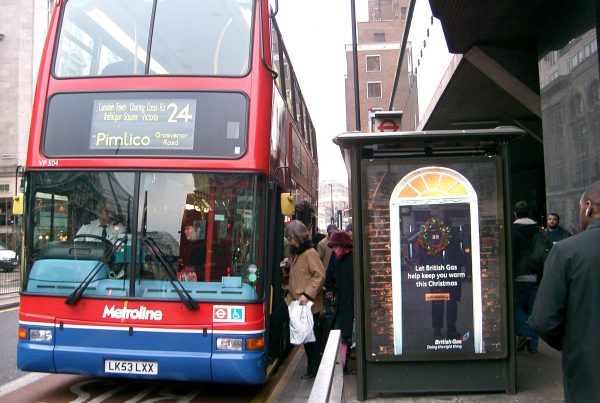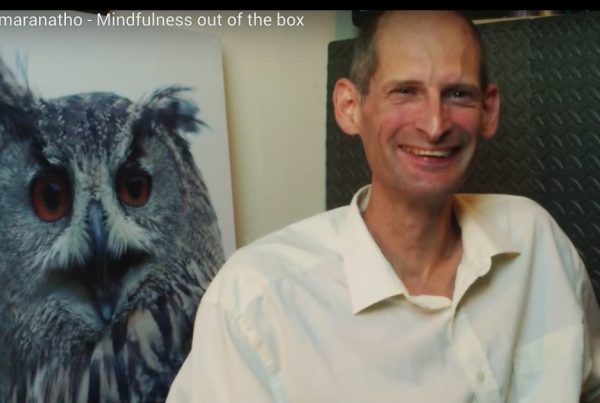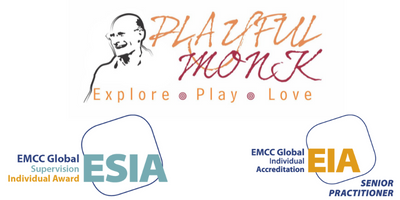Last week I rushed out of a seminar room pulling my business suitcase behind me to get to the nearby train station on time. As I arrived I noticed the electronic signs saying cancelled, I could feel the tension from trying to sort out the payment at the electronic machine, the elevated heart rate of walking fast and the mental anguish of not getting a train to meet a client on the other side of London.
I stood back for a brief moment and paused and in that split second, the mind relaxed and opened up and decision was formulated. I dashed back to the seminar room, where I had presented my mindfulness in the workplace session at adhere training business networking meeting. The organizer was just leaving and nobody else was around. She was traveling in the opposite direction to where I wanted to go and I started to notice the anxiousness arise again. She mention that there was another member of the company that could give me a lift to a different station and she had just left. We walked round to the car park and she had gone, at this point I decided to accept totally what was going on; this is what was happening now. I laughed and said “this is what mindfulness is all about, accepting the present moment as it is and responding from that place.”
As I did this and turned to walk away, two cars drove out from a car park further up in the property one of them was the member of staff I needed for my lift and so I arrived at the train station to find more trains cancelled and to repeat the process of accepting what is happening. I made it on time for my mindfulness mentoring one to one session, in fact I was early for the appointment.
A lot of the time we can spend on automatic pilot we are not sure what we are doing and why we are doing it. During my presentation of mindfulness in the workplace I introduced a framework I developed and use called Explore-Play-Love. For me explore means to take interest in what is going on both externally and also notice what is happening internally in our body/mind, be playful in how we relate to it and be kind to yourself in the process. Mindfulness then is the key skill in being able to come off automatic pilot and respond to the situation with clarity. Mindfulness can be defined as
“… the awareness that emerges through paying attention on purpose, in the present moment, and non-judgementally to things as they are”
Williams, Teasdale, Segal & Kabat-Zinn (2007, p.47)
There has now been a huge increase in research on mindfulness and it is even approved by the NHS (1) and is increasingly being used in diverse areas. Last year I spent a week living in a hospital sharing with staff the benefits of mindfulness (2). Research (3) on the benefits of mindfulness in the workplace suggest the following:-
More present workforce
Improved well-being
Improved productivity
Improved creativity
Improved self-regulation
Less absenteeism
Better communication & interpersonal relating
If we reverse the list, then the cost of workplace stress both financially and on the well-being of communities and country is huge .
Presence is the ability to stay with any given situation both within oneself and others, it allows one to be authentic, have clear boundaries , communicate effectively and flow with life. Mindfulness supports presence and is a secular practice that anybody can learn and it is not dependent on a place, position or silence.
Towards the end of the seminar I explored some practicals ways one can integrate mindfulness into our daily lives. Out of all the practice I learned in the monastery the most simple one saying yes to any situation, even in some circumstances where externally this looks like a no. I finished off the session with a simple guided meditation based on this and feeling the sensation in the body. At the end I noticed a quality of of well-being in the room, a sense of connection and trust. Given a willingness to practice mindfulness there is a good chance you can also experience this well-being. Mindfulness is just like any other body based routines it needs to be exercised, most of the research shows a daily practice based over several weeks, will help to establish a mindfulness.
If you are asking what is your ROI of allowing mindfulness in your workplace for me its very simple, happy staff makes a happy workplace, a happy workplace makes happy customers, happy customers make a happy company. When we focus on well-being everybody wins. What would you choose?
1)http://www.nhs.uk/Conditions/Counselling/Pages/Talking-therapies.aspx
2)https://www.amaranatho.com/the-mindful-experience/
3) (Baer, 2003; Chu, 2010; Shapiro & Schwartz, 2000)
4)http://www.hse.gov.uk/statistics/causdis/stress/stress.pdf
Image from here



